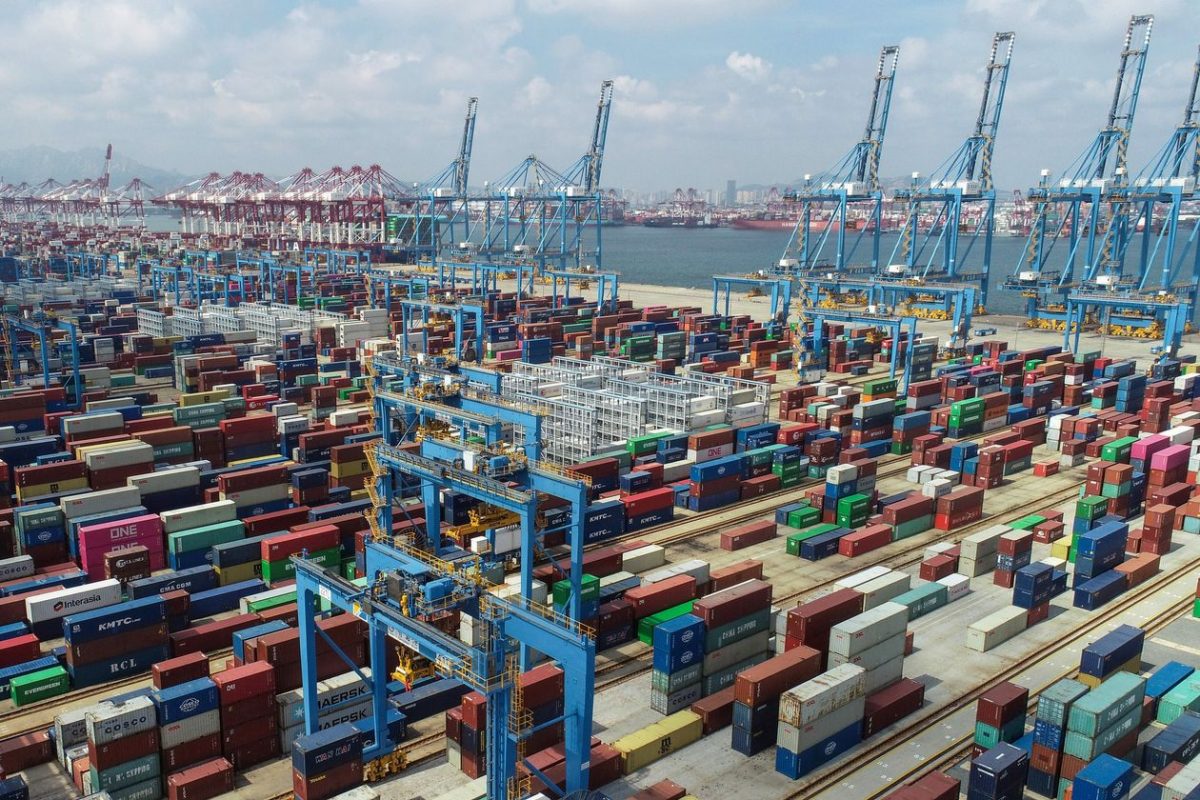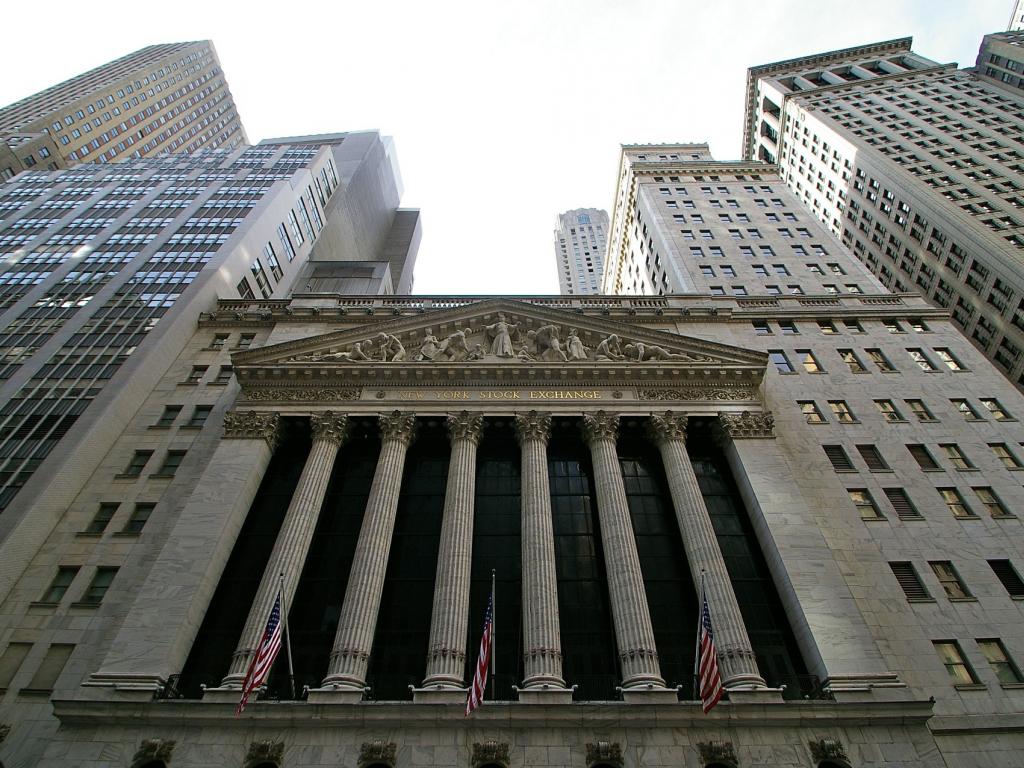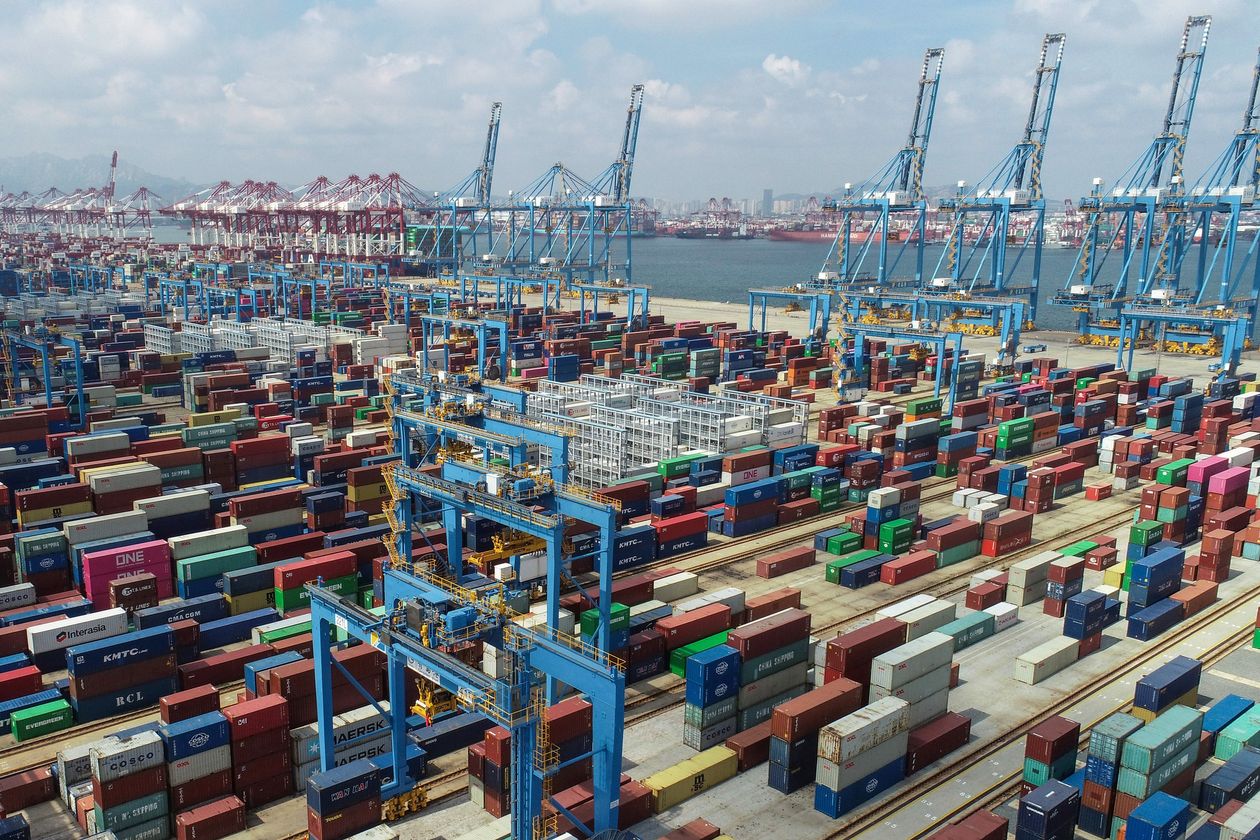Whatever its sin, Didi now says it plans to delist from New York and relist in Hong Kong. It has not specified its reasoning or responded to queries on the move. It is possible that the company has been forced to leave America by Chinese internet regulators.
This is a fiasco for the firm and its shareholders, such as SoftBank, a Japanese investment group (whose share price has sunk by 8% since the delisting announcement). It also portends two big changes in how foreign investors will access Chinese shares in the future. Didi's move could mark the first in a wave of Chinese delistings from the U.S. Securities and Exchange Commission on Thursday announced its final plan for putting in place a new law that mandates foreign companies open their books to U.S. scrutiny or risk being kicked off the NYSE and Nasdaq within three years. However, while the rules are generally considered to be written in stone, they can be overlooked for a short period of time if the exchange deems it necessary. For many of the approximately 400 stocks trading under $1, the freeze expired on January 2, 2002, and some companies found themselves promptly delisted from the exchange.
The same measures were taken in late 2008 in the midst of the global financial crisis, as hundreds of Nasdaq-listed companies plunged below the $1 threshold. Didi's delisting comes at the behest of Chinese regulators, who had long expressed concern that going public in the U.S. could risk exposing its vast troves of data to foreign powers. Despite regulatory unease, the firm pushed ahead with its IPO in June, a move that Beijing regarded as a challenge to its authority, Bloomberg News has reported.
The government reacted swiftly, announcing a cybersecurity probe into the firm days after its debut and taking its services off domestic app stores. Since then, authorities have weighed unprecedented penalties for the company, including a forced delisting. People with knowledge of the matter said last week that Beijing has directed management to come up with a plan to withdraw from the NYSE. Spat with a string of U.S.-listed Chinese firms carrying out secondary listings there in recent years, partly as a back-up in case they are delisted from New York, say market participants. Instead of a simple privatization from New York, Didi is opting to seek a listing on the Hong Kong Stock Exchange first. The move will ensure that its American depositary shares will be "convertible into freely tradable shares of the Company on another internationally recognized stock exchange," according to its statement.
The firm is planning to file for the Hong Kong listing around March, people with knowledge of the matter told Bloomberg News on Friday, asking not to be identified as the plans haven't been made public. The entire process could take three to six months to complete, First Shanghai Securities analyst Linus Yip said. Chinese regulators opposed the U.S. listing, saying it could expose Didi's vast troves of data to foreign powers. The firm pressed ahead with the June IPO anyway, in a move that Beijing saw as a challenge to its authority.
Days after the listing, the government announced a cybersecurity probe into the firm and forced its services off domestic app stores. When stocks are soaring and initial public offerings are raking in the money, it can seem like a bull market will never end. Nevertheless, market downturns are inevitable and when the fall from grace occurs—as it has many times in the stock market's history—textbook conditions for delisting can be created. Here we examine the Nasdaq delisting rules, taking a closer look at how and why delisting occurs on the Nasdaq.
We'll review what this change in status means—for both the company being delisted and the individual investors that hold its stock. Beijing will not be a passive observer, waiting for the SEC's delisting clock to run out. Since the delisting reports first surfaced, Didi's share price has declined by 20%, as some investors will be forced to sell (not permitted to hold HK-listed names) and others see the risk of additional regulatory torment. When a delisting occurs, it typically results in shareholders losing all of their investment in a particular stock unless they sell their shares before the delisting occurs. However, if a company is delisted and investors do not tender their shares, some stocks can be traded on the over-the-counter market.
The US Securities and Exchange Commission has been calling on Chinese firms listed in the US to be more transparent with their books. Yesterday, the SEC said that Chinese companies need to reveal whether they are owned or controlled by a Chinese government entity, which could hastenthe "decoupling" of Chinese stocks and the US markets. China has not given the SEC access to local audits of firms listed in the US due to national security concerns, which has long been seen as a major risk to US investor interests. The American government, which sees China as the greatest economic, political and military rival, has been putting pressure of its own on Chinese ties. It has forced some state-controlled Chinese companies in delist their U.S. shares. Securities and Exchange Commission adopted rules that would require reluctant Chinese companies listed in the United States to further open their books to American accounting firms or get kicked off its stock exchanges.
"Didi's plan to delist in the United States and the listing of Hong Kong stocks I believe will have an obvious impact on location decisions for large technology stocks' future listings. Another problem for delisted stocks is that many institutional investors are restricted from researching and buying them. Investors who already own a stock prior to the delisting may be forced by their investment mandates to liquidate their positions, further depressing the company's share price by increasing the selling supply. This lack of coverage and buying pressure means the stock has an even steeper climb ahead to make it back on to a major exchange. Even if a company continues to operate successfully after being delisted, the main problem with getting booted from the exclusive club is the trust factor.
When a stock trades on the NYSE or Nasdaq, it has an aura of reliability and accuracy in reporting financial statements. When a company's stock is demoted to the OTCBB or pink sheets, it loses its reputation. Pink sheet and OTCBB stocks lack the stringent regulatory requirements that investors come to expect from NYSE- and Nasdaq-traded stocks. Investors are willing to pay a premium for shares of trustworthy companies and are leery of firms with poor reputations. In the financial markets, the term "delisting" refers to the removal of a stock's shares from an exchange. But a delisting event doesn't necessarily mean that a company's shares stop trading altogether, because many delisted stocks continue to trade over-the-counter .
Stocks are also delisted when a company decides to return to being a private rather than publicly held company. What is unusual is for a company, such as Didi, to delist from one exchange and relist on another . It is more common for a company to list its shares on multiple stock exchanges around the world, making its stock available for trading in both New York and Hong Kong, for example. The delisting of Didi in the U.S. is an example of what could happen with many other China-based companies whose shares trade in the U.S. as a new law, the Holding Foreign Companies Accountable Act, or HFCAA, is set to go into motion. Signed into law in December 2020, the HFCAA states that any foreign company that trades on U.S. exchanges must submit to inspections of their auditor's work books by the Public Company Accounting Oversight Board.
If they don't, they will be delisted after three consecutive years of noncompliance, with this December marking the first year since the law passed. Many foreign investors expect Chinese-listed firms to be more attuned to its rapidly changing regulatory environment, says Louis Luo of ABRDN, an asset manager. And despite their willingness to crush foreign-listed tech groups, the authorities are much more sensitive to domestic market turmoil given the high level of retail investment from ordinary households. It is hard to imagine regulators causing a locally listed group's share price to collapse as Didi's has. Rather, companies with regulatory challenges will henceforth need to sort them out before listing in China. Chinese authorities have long hoped that their corporate darlings would list closer to home.
A second shift is the redirection of capital flows towards Chinese markets. Didi has been one of many Chinese tech groups in recent months to be hit with harsh regulations. The campaign, which has been aimed almost exclusively at companies with overseas listings, has erased some $1.5trn in shareholder value since February.
Yet at the same time Chinese securities markets have experienced a windfall. In particular, foreign holdings of Chinese stocks and bonds on the mainland have nearly doubled between the start of 2019 and September of this year, to about $1.1trn . A local retail investor is warning about the risks of buying shares in Chinese companies listed on US stock exchanges following the delisting of a major firm. If China still has national security concerns about DiDi, then China might reject its bid to relist in Hong Kong and force it to relist its shares on a mainland exchange that foreign investors can't access as easily. If that happens, DiDi might backtrack and try to take itself private at a discount -- which would be the worst-case scenario for U.S. investors who bought the stock at its IPO price. A delisting of shares can be contrasted with an initial public offering , which is the process of a private company going public.
This is when a company will put its stocks up for sale to the public and its shares are traded on a stock exchange. The company announced the decision yesterday (Dec. 2), and said it will ensure its American depositary shares can be converted into "freely tradable shares" on another international stock exchange. It also said it has started pursuing a listing on the Hong Kong Stock Exchange. The firm didn't give a reason for the delisting, or a time frame for the Hong Kong listing. The firm is planning to file for the Hong Kong listing around March, people with knowledge of the matter told Bloomberg News. The entire process could take three to six months, First Shanghai Securities analyst Linus Yip said.
Discover the different types of delisting, why this happens and how delisted stocks affect investors and traders. "After a careful study, the company will start delisting on the New York stock exchange immediately, and start preparations for listing in Hong Kong," the company posted on its Weibo account on Friday, a Twitter-like service in China. Some argue that delisting is too harsh because it punishes stocks that could still recover. However, allowing such companies to stay listed would result in the major exchanges simply diluting the caliber of the companies that trade on them and degrading the respectability of the companies that maintain the listing requirements.
Didi Delisting What It Means Therefore, if a company that you own is delisted, it may not spell inevitable doom, but it certainly tarnishes that company's reputation and a sign of diminishing returns down the road. For stock exchanges, the ongoing minimum standards are similar to the initial listing standards, but they're generally a little less stringent. In the case of the Nasdaq Global Market, one ongoing standard that a listed company must meet is to maintain 750,000 public shares outstanding worth at least $1.1 million—anything less could result in a delisting from the Nasdaq. "A large share of U.S. companies subject to delisting already have secondary listings in Chinese markets," said Andy Rothman, an investment strategist at Matthews Asia, the the largest dedicated Asia investment specialist in the U.S.
Chinese ride-sharing giant DiDi has been caught in Chinese regulators' crosshairs since it launched its starcrossed $4.4 billion U.S. DiDi finally announced last Friday its plans to delist from the New York Stock Exchange and relist in Hong Kong. The company's departure from the U.S. could make it the test case in a transition to a tougher data security oversight regime that could shape how Chinese tech giants conduct their businesses in the future. The announcement, which comes less than six months after DiDi's initial public offering , shouldn't surprise investors. According to Reuters, Didi is preparing to relaunch its apps in China by the end of the year, when it hopes that the cybersecurity investigation will be wrapped up.
Authorities in China have kept a tight watch over their online firms given many of them are listed in the U.S. and have to share vital data on their users with the regulators there, a scenario they are not comfortable with. Didi's news comes a day after the Securities and Exchanges Commission published new rules for enforcing access to data held by U.S.-listed companies. "After conscientious research, the company will start delisting operations on the New York Stock Exchange immediately and commence preparations to list in Hong Kong," Didi said on its social media account. A separate statement said U.S. shares would be converted into "freely tradable shares" on another "internationally recognized" exchange. Regulators said in July they would step up scrutiny of tech companies with shares traded abroad and their information security and cross-border data flows. Didi's share price fell 25% after regulators launched an investigation into its handling of customer data following its June 30 stock market debut.
As a shareholder, you should seriously revisit your investment decision in a company that has become delisted. A firm unable to meet the listing requirements of the exchange upon which it is traded is quite obviously not in a great position. However, being kicked out of an exclusive club such as the NYSE or the Nasdaq is about as disgraceful for a company as it is prestigious for it to be listed in the first place.
In some cases, investors may also be given an option to exchange their delisted American shares for shares in the company that are traded in another market. For example, if a Chinese company had a dual listing in Hong Kong and the U.S., the investor might be able to exchange his or her American-listed shares for the Hong Kong-listed shares. Sources told Reuters last month that Chinese regulators had pressed Didi's top executives to devise a plan to delist from the New York Stock Exchange due to concerns about data security. According to a press release, Didi announced ADR shares "will be convertible into freely tradable shares" in Hong Kong. However, for retail investors, the delisting and relisting could be problematic as many brokerages don't offer access to the HKEX.
The Didi delisting comes as U.S. regulators move to tighten the rules around foreign companies planning to list stocks on American exchanges. "Following careful research, the company will immediately start delisting on the New York stock exchange and start preparations for listing in Hong Kong," Didi said on its Twitter-like Weibo account. The delisting process, as this column has said before, will hurt the retail and individual investors the most, if they are not prepared. Companies that haven't established a dual listing and don't meet the requirements to move their shares to the Hong Kong stock exchange will be the most dangerous to own going forward. But Alibaba has already seemingly prepared for possibly delisting from U.S. markets. In November 2019, Alibaba shares began trading on the Hong Kong stock exchange as a secondary listing, where it raised an additional $11 billion in capital.
"Following careful research, the company will immediately start delisting on the New York stock exchange and start preparations for listing in Hong Kong," the company said on its account on Weibo, China's Twitter-like microblogging network. Sources told Reuters last month that Chinese regulators had pressed Didi's top executives to devise a plan to delist from the New York Stock Exchange due to concerns about data security. "Following careful research, the company will immediately start delisting on the New York stock exchange and start preparations for listing in Hong Kong," Didi said on its Twitter-like Weibo account. In the event of a stock's delisting from New York, investors could exchange their U.S.-listed shares for the Hong Kong-listed ones. Not all U.S.-listed Chinese companies are eligible for secondary listings in Hong Kong, Morgan Stanley analysts noted. Stock exchanges force companies to delist if they don't meet the regulatory requirements of the exchange they're listed on.
For example, the London Stock Exchange requires all listed companies to hold a minimum market cap of £700,000. Additional requirements can include filing annual reports by a specific date or having a stock price above a certain value. In the case of any delisting, it is unlikely that your investment will completely disappear. There will be warning signs and there will be ample time for you to sell your shares even if you have to do so at a significant loss.
I hope that no investor would ever have to experience such a scenario as it would most likely result in a losing trade, but it is part and parcel of investing. If a company has been delisted, it is no longer trading on a major exchange, but the stockholders are not stripped of their status as owners. However, delisting often results in a significant or total devaluing of a company's share value. Therefore, although a shareholder's ownership of a company does not decrease after a company is delisted, that ownership may become worth much less or, in some cases, it may lose its entire value.
The criteria for delisting depend on the exchange and which listing requirement needs to be met. For example, on the Nasdaq, the delisting process is set in motion when a company trades for 30 consecutive business days below the minimum bid price or market cap. As for other requirements, companies must meet minimum standards such as minimum stockholders' equity and a minimum number of shareholders, among many other things. Golden Gate Ventures partner Justin Hall said while Didi's delisting might negatively impact global investor appetite for Chinese technology companies, it's too early to say the same for Chinese retail and institutional investors. Generally speaking, investors and traders can protect themselves from potential delistings by trading high-quality companies, and avoiding companies with poor reputations.
But as illustrated by DiDi and Luckin Coffee, unexpected things do happen in the market. Listing standards pertain to requirements such as share price, liquidity and market capitalization. Listing standards also encompass accounting and auditing standards, and in the case of Luckin Coffee, the company was delisted as a result of fraud.
The delisting was announced a few weeks before the six-month lock-up expires and major investors can exit their positions. It also came a day after amendments to the Holding Foreign Companies Accountable Act were adopted by the US Securities and Exchange Commission . On Dec. 23, shares fell hard after Tencent Holdings said it'll slash its stake in JD.com to 2.3% from 17%, giving the shares to its investors. But regulators also have gone after ride-hailing firms, video game makers for-school operators, online delivery apps, Macau casinos and online brokers. On Dec. 14, Beijing levied fines vs. social media firm Weibo for publishing illegal content. China has signaled that it'll take a dim view of new overseas listings, especially for internet and data-centric companies.
Many big U.S.-listed Chinese companies already have secondary listings in Hong Kong. Those listings have already been threatened by American rules that require all listed firms to provide access to internal auditing documents or be booted off exchanges. Chinese companies cannot readily comply because officials in their home country consider such materials to be "state secrets".
The dilemma goes back a decade but a law put into practice by the Securities and Exchange Commission on December 2nd will purge all non-compliant companies from American bourses by 2024. Didi's delisting move accelerates China's decoupling from U..S capital markets. The CAC has added other U.S.-traded Chinese app-based companies to their investigations, including Full Truck Alliance Co and Kanzhun Ltd. Officials at China's Securities Regulatory Commission have resisted the U.S. Securities and Exchange Commission's information disclosure requirements, which could reveal potentially sensitive market information. Didi went ahead with the listing and within a week, the Cyberspace Administration of China, China's top internet regulator, ordered the main Didi app to be taken down pending a cybersecurity review.




























No comments:
Post a Comment
Note: Only a member of this blog may post a comment.